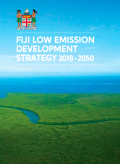
Fiji is highly vulnerable to climate change due to its position as a Small Developing State (SIDS), which leaves the country exposed to sea-level rise, cyclones of increasing intensity, and flooding, among other potential consequences. It is therefore imperative to take ambitious and rapid action to address climate change through GHG emission reductions. The Fiji Low Emission Development Strategy (LEDS) 2018-2050 is a living document compiled in 201 to define pathways to achieve low emission development in Fiji until 2050.
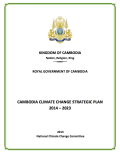
Promulgated by the Royal Government of Cambodia Cambodia Climate Change Strategic Plan 2014-2023 (CCCSP) is the first-ever national policy document responding to the climate change issues the country is facing. It reflects Cambodia's political will, firm commitment, and readiness for the reduction of climate change impacts on national development.
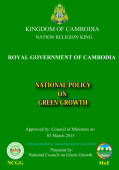
Cambodia National Policy on Green Growth sets out the Royal Government of Cambodia’s (RGC) objectives, strategy and action plan regarding the implementation of green growth policies and mechanisms in Cambodia. Green growth efforts in Cambodia are carried out in cooperation with the National Council on Green Growth (NCGG) and the Global Green Growth Institute (GGGI).
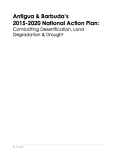
The document Antigua and Barbuda's 2015-2020 National Action Plan: Combating desertification, land degradation, and drought seeks to address issues of serious Desertification/Land Degradation and Drought (DLDD) in Antigua and Barbuda and serves as a guide to the national situation and highlights the area where mitigation and adaptation should occur. It fosters clearer pathways towards coordinated and strategic actions to address the effects of DLDD and identifies gaps in human and technological resources.
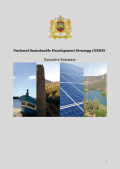
The Kingdom of Morocco is committed to meeting the challenges of the twenty-first century by making sustainable development a true social project and a new model for development. 7 Challenges with 137 detailed underlying development objectives to operationalize the sustainable development strategy are presented in the document National Sustainable Development Strategy , alongside budgetary and implementation strategies.
